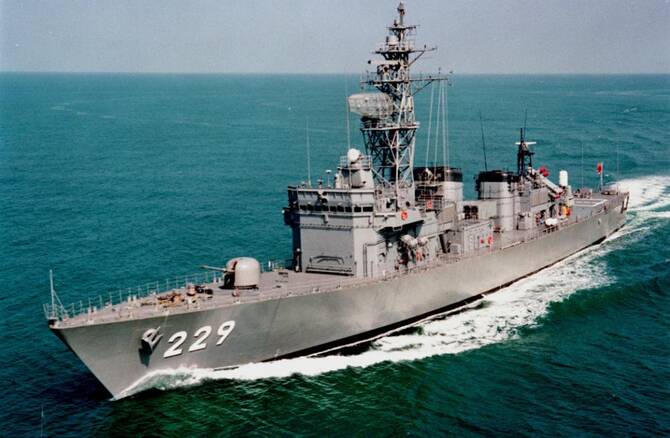TOKYO: Japan will export used navy destroyers to the Philippines to strengthen its deterrence against China’s maritime expansion, the Yomiuri newspaper reported on Sunday, as the two US allies increase cooperation to counter Beijing.
The export plan involves six Abukuma-class destroyer escorts in service by the Japan Maritime Self-Defense Force for more than three decades, the Japanese daily said, citing multiple unnamed government sources.
Defense ministers Gen Nakatani and Gilberto Teodoro agreed to the destroyer export when they met in Singapore last month, the Yomiuri said, adding the Philippine military is set to inspect the destroyers this summer as part of the final preparations.
A Japanese defense ministry spokesperson declined to comment on the report. A Philippine military spokesperson and China’s foreign ministry did not immediately respond to Reuters requests for comment.
Tokyo and Manila say they face challenges from Beijing’s increasingly assertive moves in waters including the South China Sea for the Philippines and the East China Sea for Japan.
Bilateral military cooperation has included joint exercises, a Japanese radar aid package and a high-level strategic dialogue. Last year they signed a reciprocal access agreement, the first such for Japan in Asia, allowing deployment of forces on each other’s soil.
To clear military equipment export restrictions for the destroyers under Japan’s pacifist mandates, Tokyo will treat the installation of equipment and communication systems requested by Manila as a joint development project, the Yomiuri said.
The Abukuma-class destroyer escort, a relatively small type of destroyer with a 2,000-tonne standard displacement, is operated by a crew of about 120 and is armed with anti-submarine and anti-ship missiles, torpedo tubes and guns, according to a Japanese navy website.
The Philippine Navy does not have destroyers, only frigates and corvettes, which are typically smaller and lighter-armed vessels.


























